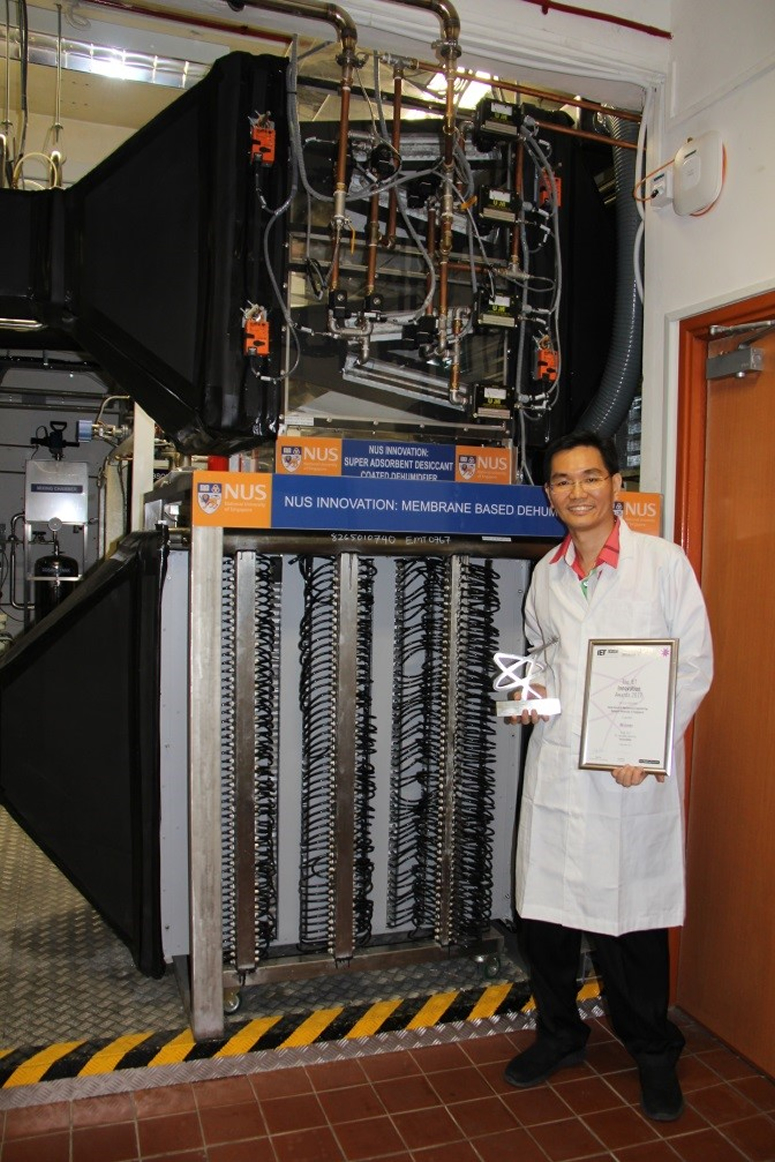 FOR his research on energy and sustainability, Associate Professor Chua Kian Jon Ernest, from NUS Mechanical Engineering, was awarded the “Institution of Engineering and Technology (IET) Innovation Award 2017” on 15 November 2017.
FOR his research on energy and sustainability, Associate Professor Chua Kian Jon Ernest, from NUS Mechanical Engineering, was awarded the “Institution of Engineering and Technology (IET) Innovation Award 2017” on 15 November 2017.
Assoc Prof Chua and his team have developed a novel hybrid method that improves air dehumidification to achieve very low air dryness. The hybrid method comprises an integration of a composite desiccant and a nano-woven membrane for air dehumidification. The solution complements any building HVAC (Heating Ventilation and Air-Conditioning) project, where removing moisture from the air via energy-efficient means is a concern. Longer sustainable performance of the composite desiccant is achieved, as the non-regenerative membrane assists in partial air dehumidification. Accordingly, the hybrid system requires a lower regenerating temperature, while producing air of very low humidity spanning 5 to 7 g/kg dry air. The proposed hybrid solution involves the composite desiccant and membrane to work in tandem to achieve enhanced moisture removal capability, and obtain improved energy efficiency by up to 40% compared to the best grade commercial desiccant dehumidification.
The widespread adoption of the hybrid dehumidification solution will reduce the energy consumption by removing moisture from humid air. This dehumidification innovation has great potential for confined spaces and mobile applications, where removing moisture from the moist air to reach very dry condition is critical. Applications that require humidity control include high-value products, such as jewellery, museum artefacts, and for the sustainable operation of delicate equipment in field hospitals, data centres, armoured personnel carriers, and operation decks of navy ships, aircrafts, etc.




